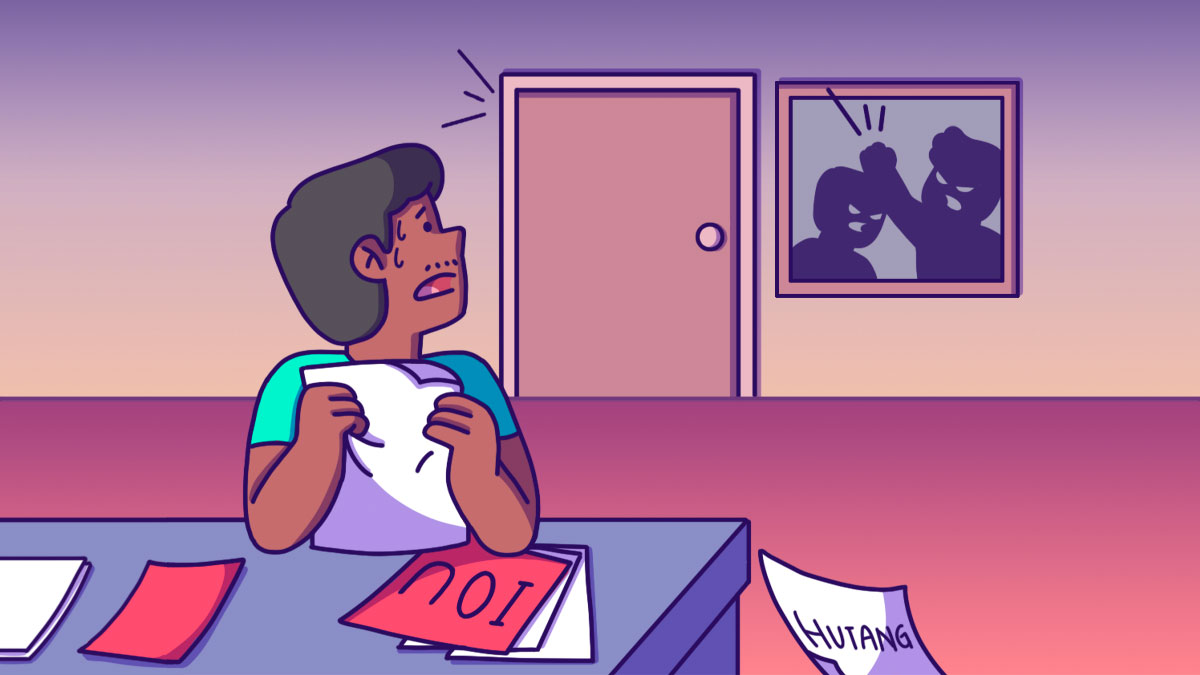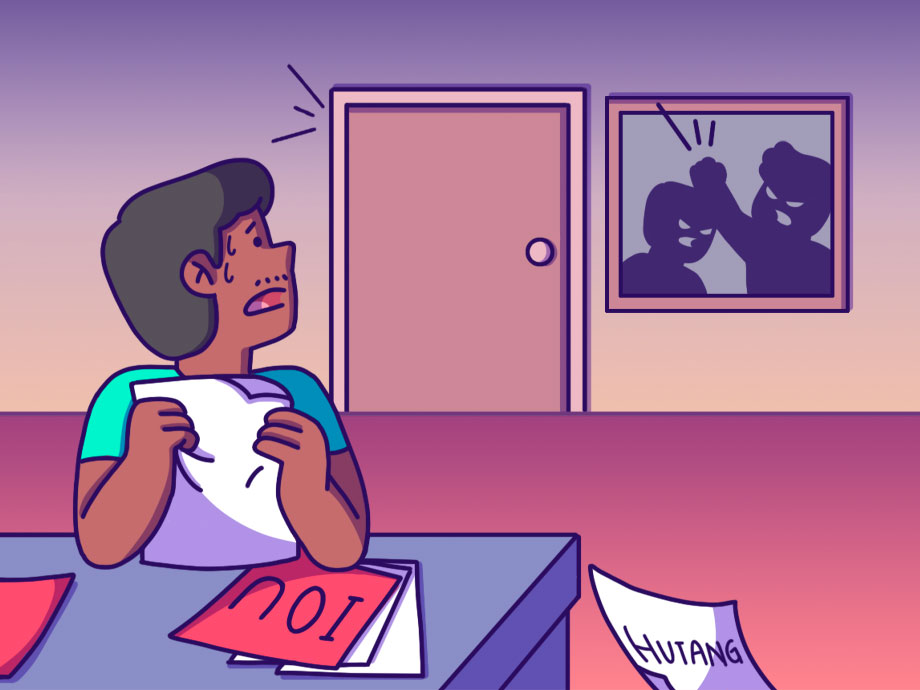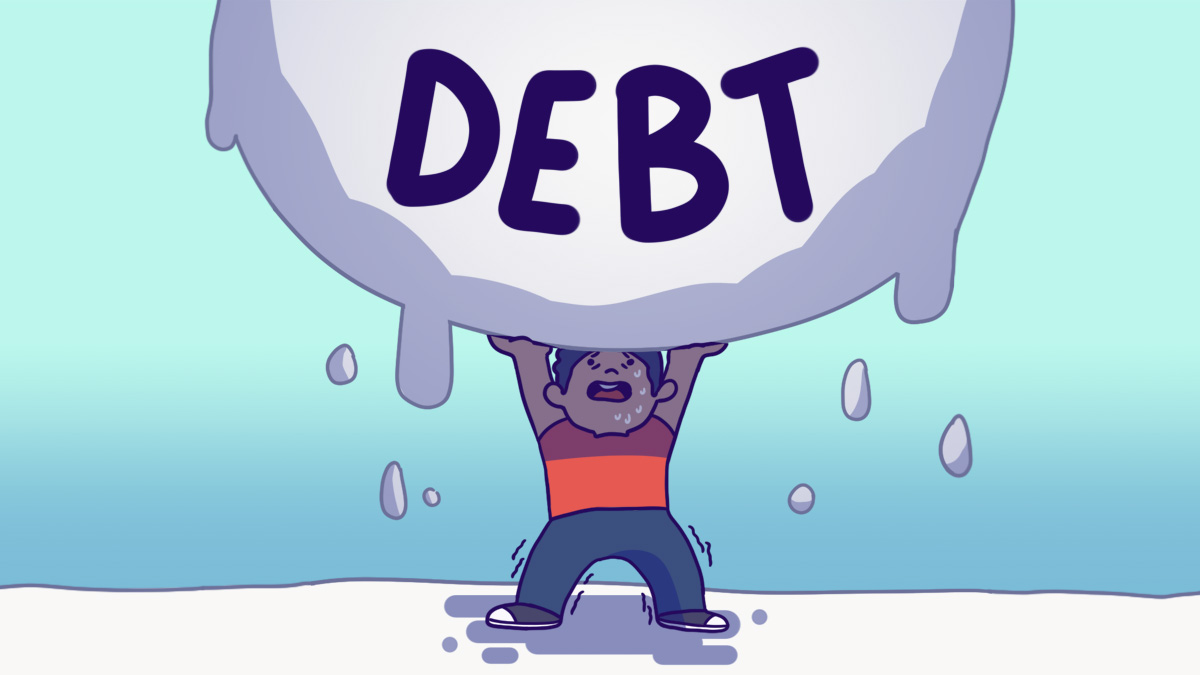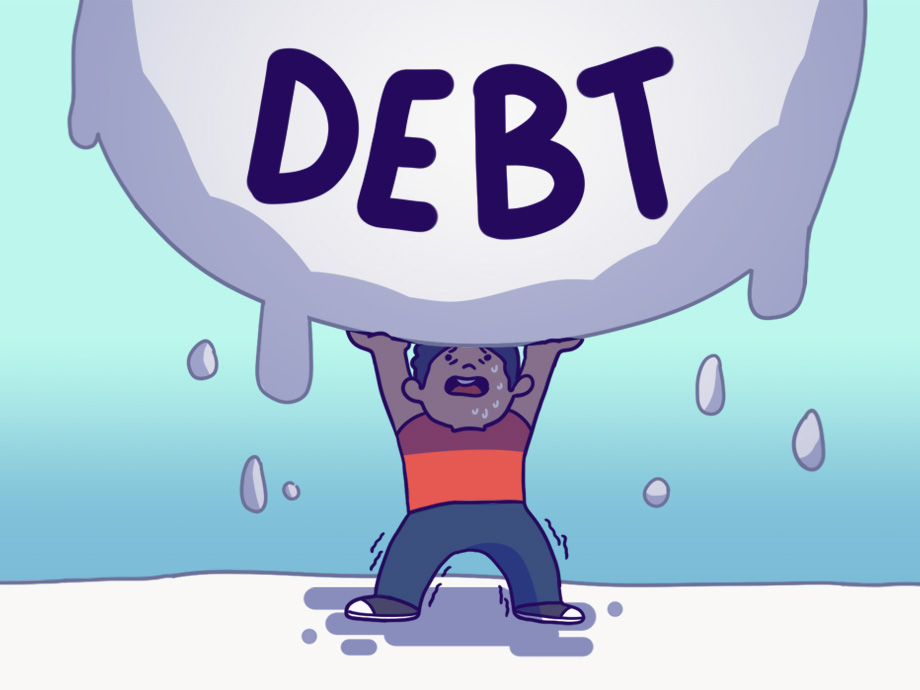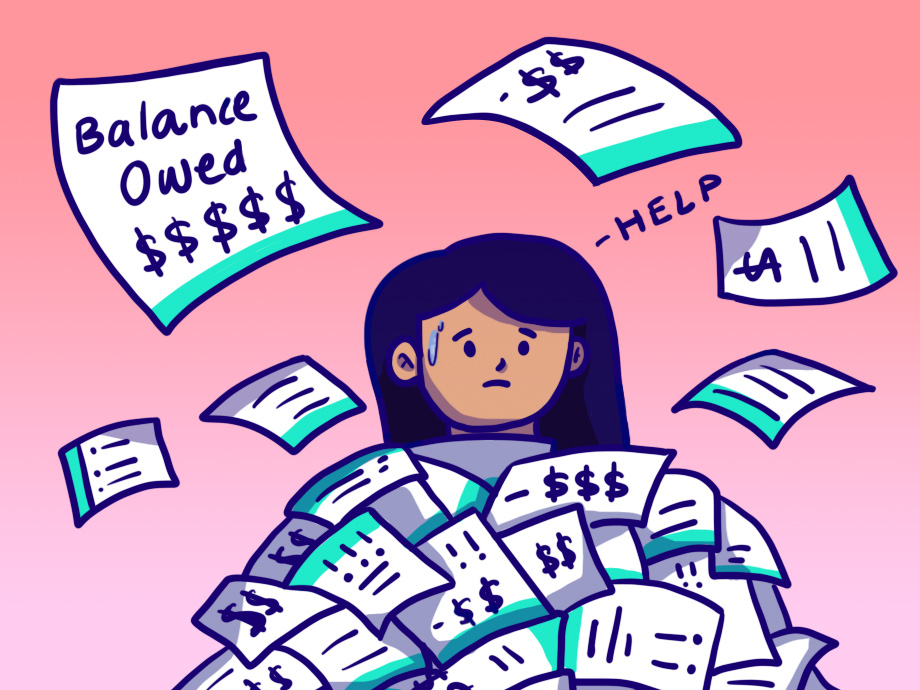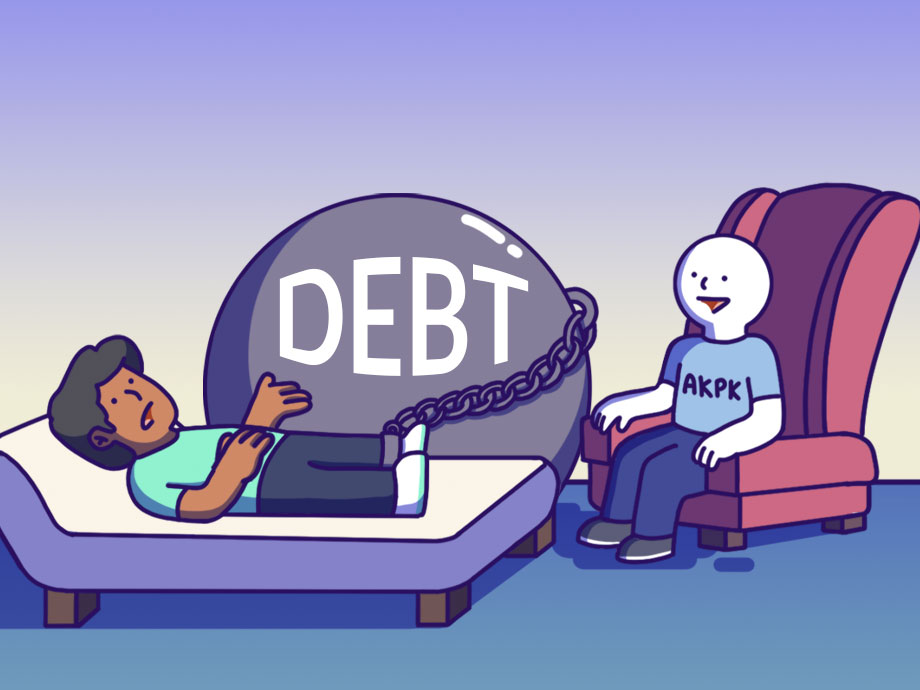Life | Managing Debt | Personal Finance | Personal Stories | Article
I Was RM450k in Debt and It Nearly Cost Me My Life
by Ooi May Sim | 25 Jan 2022
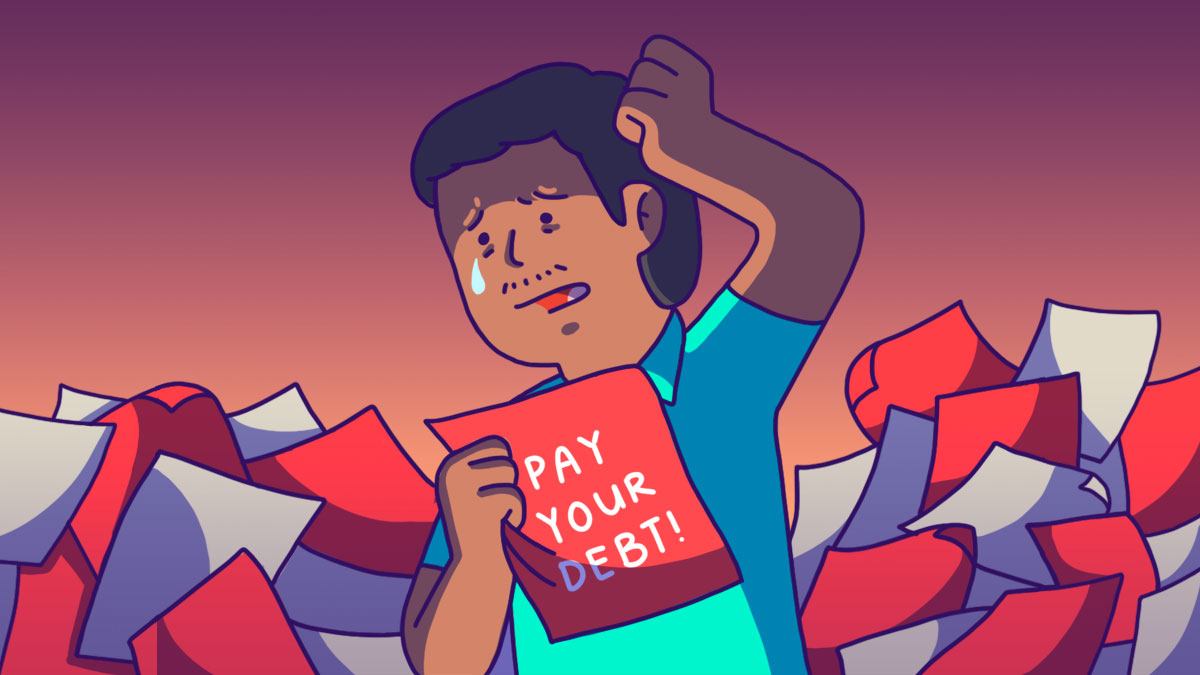
Trigger warning: This article contains elements of suicide that some readers may find distressing. Reader discretion is advised.
“Elderly man commits suicide due to debts” reads the news headline. The report goes on to explain that the man, who is in his sixties, drank 50ml of paraquat as he was overwhelmed by financial difficulties. He owed ah longs (unlicenced money lenders) RM3,000.
That is just one case.
Since the Covid-19 pandemic hit our shores, Malaysia has witnessed unprecedented suicide rates. In the first five months of 2021 alone, as many as 468 suicide reports were made, revealed Bukit Aman Criminal Investigations Department director Datuk Seri Abd Jalil Hassan. That is an average of three cases a day.
Investigations found that the three leading causes of suicide are family dilemma, emotional stress and financial pressure.
Gunasekaran Sundram suffered from all three.
The beginning of the fall
It all started in 1995. Gunasekaran, or Guna as he is affectionately called, lived with his wife and son, mother and eldest brother in the latter’s house. One day out of the blue, his brother told him that the house they were staying in was going to be repossessed by the bank.
Then, when Guna was at work, his brother came to look for him and told him that he needed to pay the court RM10,000 in order to ‘save’ the house. He had borrowed that sum from an ah long, whom he had brought along with him.
“The ah long told me to sign an IOU slip so I signed it. Then, he took my ATM (automated teller machine) card. Every month, the ah long would deduct RM1,000 from my account,” says the 58-year-old.
At that time, Guna was working in a bank as a clerical staff and earned RM850 monthly. So, paying RM1,000 every month was more than what he could afford. Plus, he also had food and utilities to pay for.
As time went by, more ah longs came to the house to look for his brother, wanting to beat him up because he owed them money. Each time, Guna told them he would pay them.
“I didn’t know what to do. My mother used to cry. She was old and would be home alone when I went to work. I was really scared that the ah longs would disturb her,” he says.
As Guna’s funds ran dry quickly, he turned to relatives and friends for help and started borrowing money from them. He even borrowed from other ah longs.
Related
Accumulating debt
After a while, it all became a blur. All Guna remembers is that every month, his salary would vanish as soon as it came in, and there was never enough to go around.
It wasn’t long before the bank threatened to repossess his brother’s house again. This time, Guna told his brother that he would buy over the house and paid the RM5,000 and RM4,500 court and legal fees. He withdrew RM13,500 from his Employees Provident Fund (EPF) savings and took a housing loan, which was approved in a day.
However, when it came time to transfer ownership, his brother refused.
“I did everything based on trust. When I was young, I didn’t (grow up with) a father because he passed away when I was eight. So, my brother was the one who looked after us (Guna and his siblings) and helped us to study,” explains Guna.
Feeling threatened, Guna and his wife were told to leave the house. His brother and sister-in- law gave them two days to move out. Luckily, they found a house to rent in Taman Ehsan, Kepong.
Shortly after that, Guna was offered a job with higher pay, at another bank. He took the job.
Coincidentally, their landlord wanted to sell the house they were renting, and, equipped with his higher salary, Guna and his wife decided to buy the property. They agreed that Guna’s mother-in-law would pay the down payment while the couple would service the housing loan.
But financial problems have a way of finding the vulnerable.
In 1997, Guna’s wife was involved in a hit and run accident that nearly cost her her life. She was dragged by a one-tonne lorry and was hospitalised for three months. After that, she underwent nine months of physiotherapy to regain control of her arm, which had been paralysed from the mishap.
As the years went by, Guna and his wife were unable to sustain the house instalments. The bank seized their house and put it up for auction.
Related
Reaching breaking point
Still, ah long after ah long came looking for him. Guna didn’t have a house, had no money, and saw no way out from the huge debts that he owed.
One day, while he was at work, something snapped. Guna walked up to the highest floor of the Puduraya building, sat on the ledge, and was ready to jump.
“I just wanted to leave this world. I had no thoughts. My mind was fully blank. I don’t know how I walked to the building or got up there. It just happened (in a) split second.
“If my friend didn’t come, I would I fallen. I was on top already,” Guna shares.
His childhood friend, who worked in the same building, saw Guna and shouted, “Wait! Wait! Wait!” while running towards him. He grabbed Guna, hugged him and gave him some water.
He then reprimanded him, saying, “No lah Guna, this is not the right way. Why (are) you doing this? You’ve got children. If you need help, I can help.”
Unfortunately, this wasn’t the only time the thought of suicide crossed Guna’s mind.
Once, when Guna was riding his motorcycle, he had a strong urge to ram his vehicle into the petrol tanker in front of him. Fortunately, his mind suddenly drifted to his family, and he realised that killing himself would not solve anything.
“I can go, but (what about) my wife and child? The ah longs definitely won’t leave my family alone. They will come and disturb them.
“So, that’s when I told myself, ‘No’. There is no ending. I knew that I have to do whatever I have to do,” he says.
Light at the end of the tunnel
After Guna’s house had been auctioned off, he was called to the bank because they wanted to sue him for bankruptcy for RM150,000.
“I was very upset. When I was leaving the bank, a bank staff – who is like a god to me now – saw me and asked, ‘Why are you crying?’ I told him that my house has been auctioned off and that I was still in debt.
“He told me to go to Bank Negara to see how they can help you. I walked there immediately. When I got there, they told me to print my Central Credit Reference Information System (CCRIS) report,” says Guna.

After seeing his CCRIS report, which displays all credit and loans with the banks, Bank Negara referred Guna to Agensi Kaunseling dan Pengurusan Kredit (AKPK). There, Guna met Annie Tan.
Annie told Guna to give her three days to negotiate with the banks. The next time they spoke, she came bearing good news – AKPK had managed to reduce the RM150,000 that was owed to RM44,000. “That is what AKPK does,” explains Guna.
They even came up with a repayment plan: Guna had to pay RM480 to AKPK by the 30th of every month. The agency would then disburse the money to all the banks he owes.
But that only took care of his car loan, housing loan and credit card debt. Guna still had ah long debt to be repaid.
Turning his life around
The help that AKPK gave Guna sparked a change in him and how he approached the rest of the money he owed. Instead of being scared and unsure, Guna now had a newfound sense of confidence that he could, for the first time, break out of debt. So, instead of running from the ah longs, Guna called them to negotiate.
Guna explained to one ah long that he had already paid off the sum that was borrowed and asked him to stop all interest. He agreed.
For example, Guna says, “I only borrowed RM10,000 (from one ah long), but in total, I paid him RM45,000 because of the interest. I have paid more than I have taken”.
To repay all the debt, Guna and his wife worked tirelessly to save up more money. They held multiple jobs and were working seven days a week.
Guna would wake up at 4am on weekdays to collect and distribute newspapers to shops, before heading to his office. On weekends, Guna would drive his friend’s father’s airport taxi, ferrying people to and from the Subang Airport.
He also started paying the friends and family who he had borrowed money from previously. Slowly, Guna started gaining control of his finances.
“I even paid back the RM30 I borrowed from an old lady in the market. I wrote her name on a piece of paper, and when I had money, I went and settled everything,” shares Guna proudly.
In total, Guna had an accumulative debt of RM450,000, bank debt and ah long debts included. When Guna hit age 50, he used his EPF savings to pay off the ah longs whom he owed large sums of money to.
And after accumulating more than RM20,000 in savings, Guna settled his AKPK loan in 2015, four years after he signed up for their Debt Management Programme.
A cautionary tale
Although Guna is now debt-free, it was a long and rocky road to get to where he is today. “I did a lot of unwanted things. To get money, I used to tell (people) that my children are sick, my wife is sick, or my mother is sick. Actually, my family are okay. I can cry when I think about it,” he says.
When debt takes over your life, you become a different person. To survive, Guna sold all his valuables. “I sold my motorbike. My wife had so much jewellery. I sold it all. Pity her. I sold every damn thing!” he says angrily.
But it is difficult to break out of that cycle. As Guna recalls, “I would borrow from one ah long to pay another. So, I am still owing. I’ll start digging this hole, then another hole to cover it. It’s not solving the problem. I am just (giving) myself more problems with all these debts.”
Looking back, Guna feels blessed to have met so many good people, whom he attributes for “saving his life”. Now, he tries to help others who are in financial turmoil by sharing his story and by bringing them to AKPK to seek aid as the agency gave him a “second chance in life”.
And to those who are in a similar situation as he was, Guna has one piece of advice: “Please go and seek help. Don’t go to see an ah long. That is not real help. It is just temporary (help). It is not easy, but don’t be shy. If you’re shy, you will lose everything in life.”





